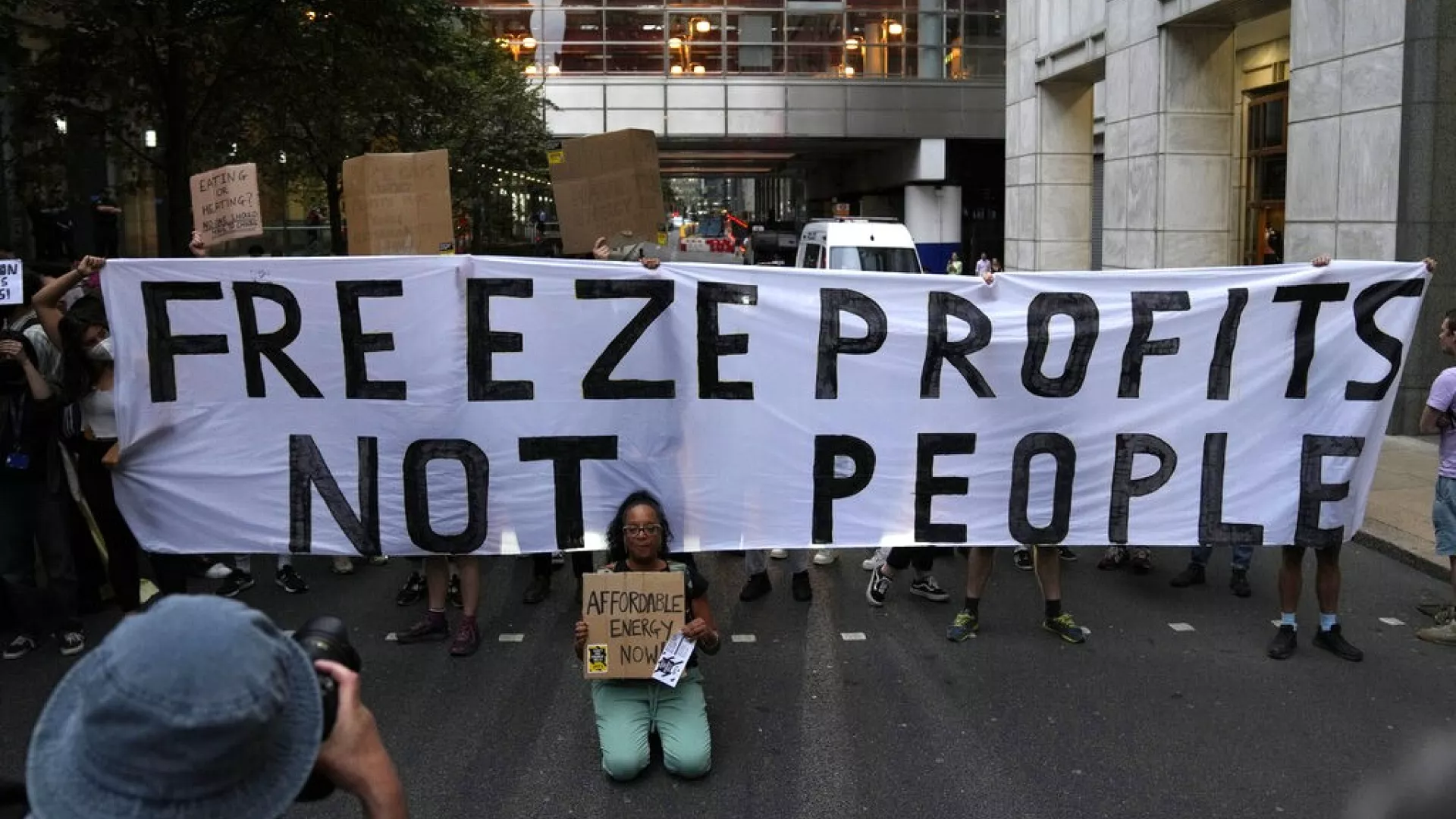Ofgem lowers price cap: What does it mean for British energy bills?
Demonstrators hold up placards as they protest outside the British energy regulator, Ofgem. London, Friday, Aug. 26, 2022.
By Eleanor Butler
Published on 23/02/2024 – 16:13
Share this article
Comments
Households in England, Scotland, and Wales will pay 12% less for their energy bills from April, although costs remain historically high.
The British energy regulator Ofgem announced on Friday that it will drop the energy price cap in response to falling wholesale costs.
From April to June, the maximum price suppliers will be able to charge customers will fall to its lowest level in two years.
Compared to the same period in 2023, Ofgem is planning a cut of around 12%, which will bring an annual average household bill to £1,690.
This is down from the current yearly total of £1,928, saving customers an average of £20 a month.
Direct debit gas prices will be capped at 6p per kilowatt hour (kWh) and electricity at 24p per kWh.
To compare this with present prices, direct debit gas is limited to 7.42p per kWh and electricity to 28.62p per kWh.
Whilst this does present a positive shift for customers, energy is still far more expensive than it was before the winter of 2021.
“This is good news to see the price cap drop to its lowest level in more than two years,” said Jonathan Brearley, CEO of Ofgem, “but there are still big issues that we must tackle head-on to ensure we build a system that’s more resilient for the long term and fairer to customers.”
Due to supply shortages caused by the post-pandemic rebound, the price of oil, gas, and electricity started to climb in late 2021, a trend exacerbated during the following year when Russia invaded Ukraine.
The spike in energy prices was a key driver of the inflationary crisis seen in Britain, although prices have now started to fall as markets stabilise and suppliers return to stronger financial positions.
Since November, wholesale gas prices in Britain have fallen by 40%, meaning that lower costs for suppliers can be transformed into smaller bills for consumers.
European natural gas prices plummet: Is the energy crisis finally over?
UK consumers face 80% rise in energy bills from October as regulator raises price cap
When announcing the new price cap, Ofgem also said that it is aiming to give prepayment customers a fairer deal.
Prepayment meter (PPM) customers, who pay their bills on a pay-as-you-go basis, are usually charged higher rates than those paying by direct debit.
Sometimes these meters are forcibly installed if customers fail to pay their energy bills, as they are therefore charged for their consumption ahead of time.
In November, Ofgem said that the cost of living crisis had raised concerns over these kinds of payment systems.
“PPM customers currently have the highest proportion of disabled, chronically sick and low-income customers of any payment method,” the regulator said.
“At present, they pay slightly lower unit rates but higher standing charges than Direct Debit (DD) customers, driven by fixed operational costs.”
Ofgem announced on Friday that in order to support PPM customers, standing charges will be altered so that those with prepayments meters will save around £49 per year, whilst direct debit customers will pay £10 more.
The regulator is also planning to add a temporary annual charge of £28 to the bills of consumers who pay by direct debit or standard credit.
This is to manage the £3.1 billion of debt that customers owe to suppliers, although individuals using prepayment meters will not be impacted by the extra fee.
The exemption reflects the fact that PPM customers don’t build up the same level of debt because they top up their credit as they go.






























